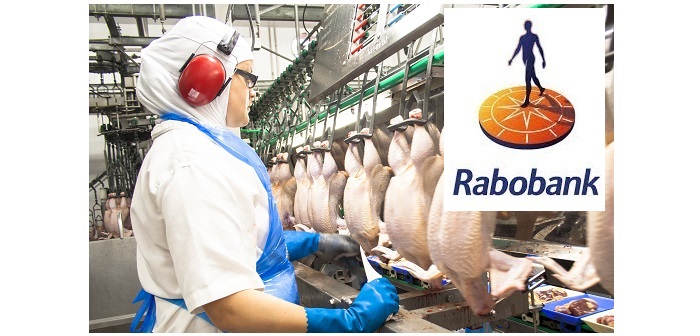The new wave of avian influenza (AI) outbreaks is challenging the outlook for the global poultry industry in 2017 says Rabobank in its latest quarterly report on the poultry industry.
Commenting that the new outbreaks come just as the global market was recovering from the negative impact of the 2015 AI crisis, Rabobank warns that the latest AI surge has the potential to “shake up global market conditions” next year, in relation to both the meat and breeding sectors.
“This is an unwelcome situation for an industry which finally reported better results at the end of 2016 and which has pretty favourable fundamentals,” said Rabobank.
“The industry currently has strong market balances in most regions and ongoing low costs, despite lower expected red meat prices.”
The new report lists four key factors which “will challenge” the outlook in 2017:
- The return of AI is now shaking up global trade conditions and is especially affecting the outlook for Asia, Europe and Africa. It will also be a test for the US industry, after last year’s many AI outbreaks. As many European and Asian countries are exporters of meat and breeding stock, this will certainly impact the outlook for the industry, and could shake up meat and breeder trade again.
- The rise of chicken concepts will lead to a more differentiated chicken market and also to changing supply and trade conditions. For example in the EU this will lead to increasing standard chicken production in Eastern Europe, with concepts becoming more important in Western Europe and the US.
- The ongoing Chinese supply shortage will continue to affect global market conditions. Ongoing high China and Hong Kong import volumes are expected, benefitting countries that are allowed to export directly to China, while Chinese consumers will continue to face high prices for specific preferred products. The Industry is working on new strategic sourcing initiatives.
- Pressured global trade volumes are expected next year, given an ongoing high AI impact and increasing trade protectionism. China’s import demand and the possibility of improved relations between the US and Russia are promising, but lower support for TTIP and TPP will have adverse impacts.


